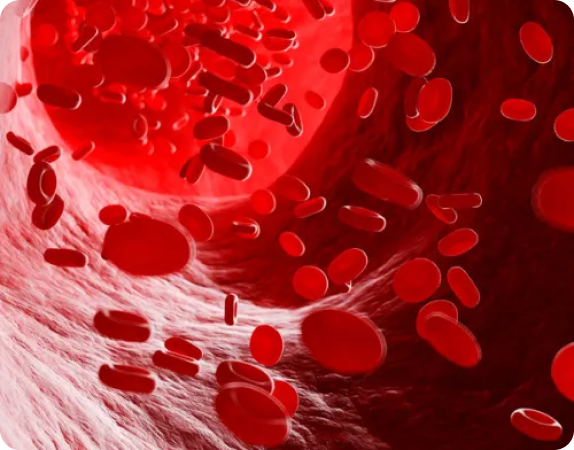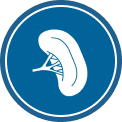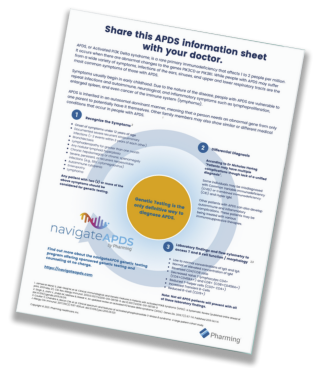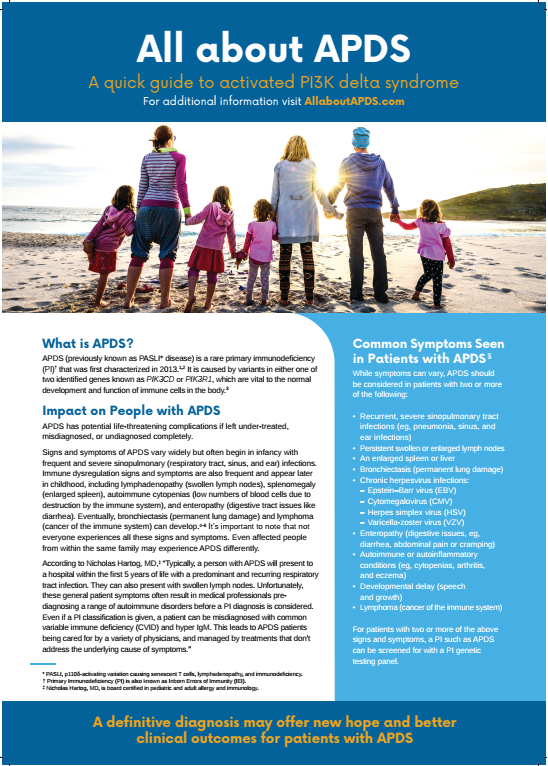
Activated PI3K delta syndrome (APDS) and Evans syndrome are both rare chronic conditions. Evans syndrome is an autoimmune condition that causes a lower than normal level of blood cells known as cytopenia. People with Evans syndrome can have two forms of cytopenia at the same time, or they may occur sequentially. APDS is a rare primary immunodeficiency (PI) that causes immune deficiency and immune dysregulation. Immune dysregulation can cause autoimmune complications. In around 30% of cases, people with APDS have autoimmune conditions, with cytopenia being the most common manifestation.
APDS has a wide variety of symptoms which can make it difficult to recognize. It has been reported that the median delay to diagnosis of APDS is seven years. Sometimes people can be diagnosed with other conditions, like Evans syndrome, until APDS is confirmed through a genetic test.
In a study of children (n=80) with Evans syndrome who underwent genetic testing, 40% had abnormalities in certain genes that are known to cause PI, including PIK3CD, which causes APDS.

If you have experienced a lack of response to standard Evans syndrome treatments, or have cytopenia plus some of the symptoms outlined below, discuss with your doctor to see if you are a candidate for genetic testing for APDS.
The most common, and often earliest reported APDS symptoms include frequent and severe infections of the ears, sinuses, and upper and lower respiratory tracts which begin in infancy.
Common APDS signs & symptoms include:

96-100% of reported cases

71-89% of reported cases

51% of reported cases

51% of reported cases

36-49% of reported cases

~30% of reported cases

~30% of reported cases

10-31% of reported cases

12-25% of reported cases
People who suffer from any two or more of the above conditions, should consider APDS.
Lymphoma under the age of 26 should raise suspicion of APDS.
Before patients are correctly diagnosed with APDS, they often have a lengthy wait for a diagnosis involving multiple visits to various specialists. Symptoms are treated without identifying the underlying cause.
Every year new genetic variants are picked up by the latest genetic tests.
Five years ago we had only identified 200 genes associated with PI, and by 2023 we had identified more than 450.
If you have had a genetic test for a PI such as APDS in the past, speak to your doctor to see if retesting is appropriate for you.


*This program is currently available in the US and Canada only. Eligibility requirements apply.
*This program is currently available in the US and Canada only. Eligibility requirements apply.
